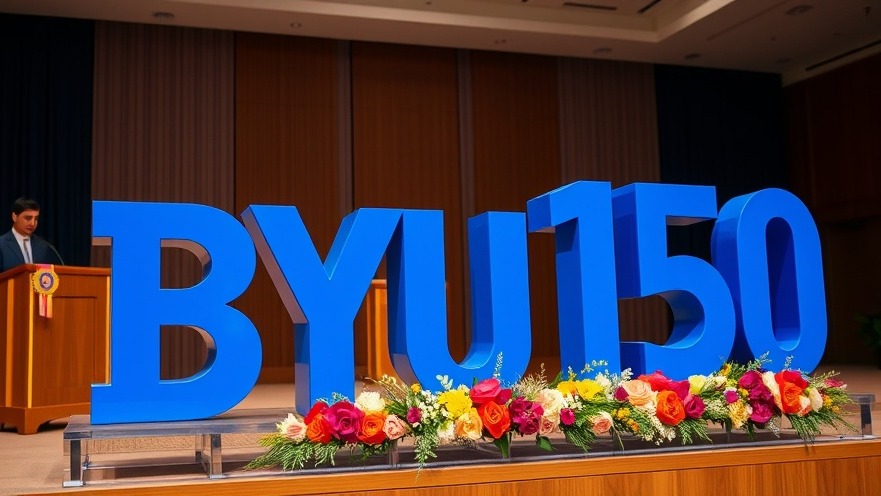
Jill Tokuda's Bold Stand Against Partisan Politics
In a recent address on the House floor, Hawaii Representative Jill Tokuda brought attention to the troubling actions of her colleagues on the Armed Services Committee while deliberating on the National Defense Authorization Act (NDAA). Her speech articulated a pressing concern: that the amendments proposed were largely dismissed in a closed partisan process that eliminates transparency and accountability. Tokuda’s focus on maintaining honor and justice for victims, particularly in cases of sexual abuse, resonated furiously with her constituents and the nation at large.
In 'They're Once Again Protecting A Pedophile', Jill Tokuda raises critical issues surrounding accountability and justice in the political realm, paving the way for deeper analysis.
Defending the Vulnerable: A Call for Justice
One of Tokuda's key amendments sought to disinter Dr. Robert McCormick Brown, a figure accused of sexually abusing numerous students in Hawaii, from the National Memorial Cemetery of the Pacific. This pointedly challenges the ethics of honoring a known predator alongside those who have genuinely served and sacrificed for the country. Tokuda highlighted that such inaction by her Republican counterparts represents a fierce betrayal of the victims seeking closure and justice. The implications of her advocacy are further expanded in a landscape where the judicial processes for abusers are often inadequate.
The Broader Context of Veterans' Rights
Beyond the shocking revelations regarding personnel mismanagement during committee proceedings, Tokuda turned the conversation toward pressing issues impacting veterans. She reminded her peers of their duty to support those who've dedicated their lives to service. Proposals like suspending commissary debit card fees and eliminating medical co-pays for Native Hawaiian veterans reveal a stark truth: many veterans are still grappling with economic hardships amidst an administration that fails to prioritize their needs.
Her suggestions for improving conditions in barracks, increasing health care benefits, and ensuring due process for veterans at risk of deportation echoes a call for reform that resonates with veterans and their families. Winning this battle could mean a life of dignity rather than a struggle against bureaucracy.
Shutting Down Democracy: The Dangerous Trend
Tokuda made a compelling argument—one that isn’t limited to military or veteran concerns—when she noted that closing off debate and transparency is a fundamental danger to democracy. This tactic, often employed by partisan factions in government, silences dissent and marginalizes ideas brought forth by those in power. The comparison to a "detocracy" rings clear: it poses a systemic threat to American values and representation.
This is especially prevalent in discussions around national security and defense policies. As the Biden administration and Congress negotiate increasingly complex relationships with global powers, there is a dire need for leaders who value open dialogue and inclusive decision-making. Transparency is essential not only to ensure citizens are informed but also to guarantee that armed forces are adequately supported.
Future Implications of These Political Decisions
As bipartisan agreements come under attack on Capitol Hill, those choices made in isolation can lead to ramifications felt across communities nationwide. Not only are they impacting service members and veterans, but the lack of accountability also erodes confidence in governmental institutions that are meant to uphold justice and equality.
Tokuda’s efforts to raise her colleagues' awareness about these issues serve as a pleading reminder that well-executed policies cannot stem from exclusionary processes or service members' neglect. Her position challenges others on Capitol Hill to reflect: what are we willing to sacrifice for political gain, and at what cost to the vulnerable?
The Importance of Civic Engagement and Advocacy
Communities across America must heed Tokuda’s message—engagement in political processes remains quintessential for ensuring that victimized groups receive justice. The right to voice concerns and propose amendments must be cherished and defended. It’s the collective responsibility of citizens to remain vigilant about the integrity of their representatives.
Through civic engagement, advocacy for victims' rights, and continuous dialogue on Capitol Hill, we can work toward building a more equitable democracy that honors service members and victims alike. Democracy demands transparency, accountability, and genuine representation—it’s a call to action for all.
Engage: What Will You Do?
In conclusion, as we reflect on the powerful stand taken by Jill Tokuda against systemic injustices, it’s imperative to consider your own role in advocating for those without a voice. Engage with your local representatives, participate in community discussions, and push for policies that seek to rectify the injustices highlighted in these debates. Every action counts, and together, we can evoke change.
Let’s advocate for a democracy that stands for everyone and holds perpetrators accountable. Stay informed, involved, and proactive in the democratic process.
 Add Element
Add Element  Add Row
Add Row 



Write A Comment